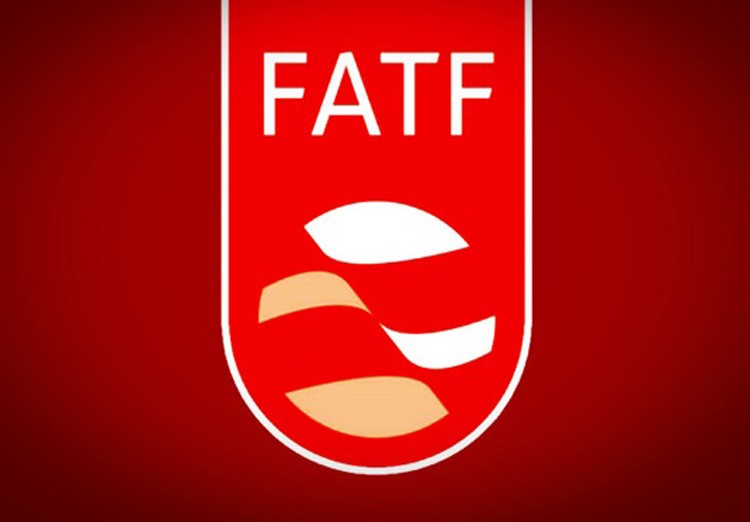June 28, 2019

The extension announced June 21 was the sixth extension since FATF first gave Iran a deadline in June 2016, three years ago, to adopt FATF’s banking standards.
The FATF standards are intended to block the use of financial institutions to finance terrorism or to launder money. Many hardliners in Iran say the purpose of the FATF standards is to block Iran from financing the Lebanese Hezbollah and the Palestinian Hamas, which many cite as terrorist organizations. Many others, however, including President Rohani, have warned that international banks will refuse to do business with Iran if it does not adopt FATF standards—so that getting off US sanctions won’t make any difference if Iran goes back on FATF’s blacklist.
Only Iran and North Korea have been on the FATF blacklist in recent years. In 2016, FATF suspended Iran from the blacklist after Iran promised to adopt the FATF banking standards. Since then, the Majlis has enacted laws embracing all the FATF standards—but the Council of Guardians has vetoed two of those pieces of legislation.
Both of those items have been before the Expediency Council for six months. The Expediency Council resolves spats between the Majlis and Council of Guardians. But for six months the Expediency Council has just kicked the can down the road and put off any final vote on the two measures.
The Council pledged a number of weeks ago that it would make a definitive decision before FATF’s latest extension expired June 21. But it took no action by the deadline.
In its June 21 decision, the FATF gave Iran a new four-month extension—but said member countries should now step up their supervision of Iranian bank branches in their countries. This was what the FATF said in February it would do if Iran didn’t adopt all the FATF standards by June.
If Iran has not come into full compliance with FATF standards by October, the organization said it would impose still additional oversight of transactions with Iran. It didn’t specifically say it would put Iran back on the blacklist, but the financial reporting it said it would impose would go a long way in that direction.
An additional problem for Iran is that Britain, France and Germany have all said they will not put INSTEX—their mechanism for conducting financial transactions with Iran outside US sanctions—into effect until after Iran comes into full compliance with FATF.
Despite the attention the FATF demands have received in Iran, there was surprisingly little news coverage given to the FATF decision in Iran. The Islamic Republic News Agency (IRNA), the state news agency, was the only one seen by the Iran Times to report the news June 21—and it only reported that the deadline for compliance had been extended four months. It did not say that FATF imposed more rules on dealing with Iran or that it warned it would increase the surveillance of transactions with Iran further if Iran did not come into compliance by October.
Following are the key paragraphs from FATF’s June 21 statement:
“The FATF decided at its meeting this week to continue the suspension of counter-measures, with the exception of the FATF calling upon members and urging all jurisdictions to require increased supervisory examination for branches and subsidiaries of financial institutions based in Iran, in line with the February 2019 Public Statement.
“While acknowledging the progress that Iran made including with the passage of the Anti-Money Laundering Act, the FATF expresses its disappointment that the Action Plan remains outstanding. The FATF expects Iran to proceed swiftly in the reform path to ensure that it addresses all of the remaining items by completing and implementing the necessary AML/CFT [anti money laundering/combating the financing of terrorism] reforms.
“If by October 2019, Iran does not enact the Palermo and Terrorist Financing Conventions in line with the FATF Standards, then the FATF will require introducing enhanced relevant reporting mechanisms or systematic reporting of financial transactions; and increased external audit requirements for financial groups with respect to any of their branches and subsidiaries located in Iran. The FATF also expects Iran to continue to progress with enabling regulations and other amendments.
“Iran will remain on the FATF Public Statement until the full Action Plan has been completed. Until Iran implements the measures required to address the deficiencies identified with respect to countering terrorism financing in the Action Plan, the FATF will remain concerned with the terrorist financing risk emanating from Iran and the threat this poses to the international financial system. The FATF, therefore, calls on its members and urges all jurisdictions to continue to advise their financial institutions to apply enhanced due diligence with respect to business relationships and transactions with natural and legal persons from Iran.”
FATF is an international organization with about three dozen members, including states and international financial institutions. It was formed in 1989 at the urging of the Group of Seven, the seven countries dominating global finance. The Group of Seven acted to address the growing use of international banks to launder money made through drug trafficking. Later the countering of terrorism funding was added as a goal.
Most of the member states are major financial centers. But Saudi Arabia joined the group in June.
